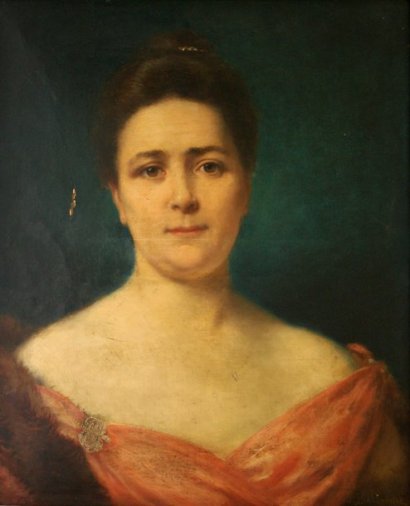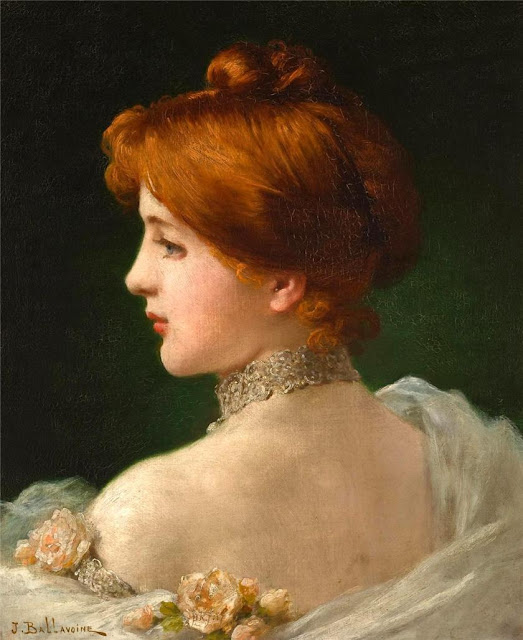Jules Frederic Ballavoine (1855-1901
Jules Frederic Ballavoine, who is a Parisian by birth, and has had his share of Salon honors, is a pupil of Pils, who was the master of so many French artists of the foremost talent. His "Lassitude" is a model in its department of his art.
"Fragility" is one of a series of decorative panels painted by J.F. Ballavoine for the boudoir of a Paris mansion. The subject is a fair social enchantress who, after a great ball, has disrobed and casts herself wearily on her couch, and in doing so has broken the pearl ornaments she wears in her hair. A natural idea might suggest itself to a possibly cynical observer that the jewel was not the only fragile object in the picture.
Jules-Frédéric Ballavoine (Paris, 1855 - 1901) is considered a still-life, genre and landscape painter from the French school.
He received his formal art training at the L'Ecole de Beaux-Arts under historical painter Isidore Alexandre Augustin Pils (1813-1875). Ballavoine found incredible success as a painter of small Paris street scenes, which have been compared to those of Jean Beraud (1849-1910) and his exquisite small light filled still-lifes equal those of the traditional realist Edgar Degas (1834-1917) and closely relate to the supple simplicity of impressionist Henri Jean Theodore Fantin-Latour.
Jules-Frédéric Ballavoine debuted at the Salon of 1877 with "Le bouquet champêtre." At the Salon of 1882 with "Surprise", "Le Marche aux fleurs" and "La Petite Bohemienne" and at the Salons of 1883 and 1886 with "Parmi les rochers" and "Sur la terrasse."
At the 1886 Paris Salon, Ballavoine was awarded a medal for "La seance interrompue." He also exhibited at the Salon of 1890 and 1897. He continued exhibiting his delicate still-lifes, portraits, Paris street scenes and historical genre paintings.
All of his exhibitions received critical acclaim, which helped him become a very successful painter. His works can be found in private and public collections in both the United States and Europe.








.jpg)



.jpg)











.jpg)












.jpg)


Tidak ada komentar:
Posting Komentar